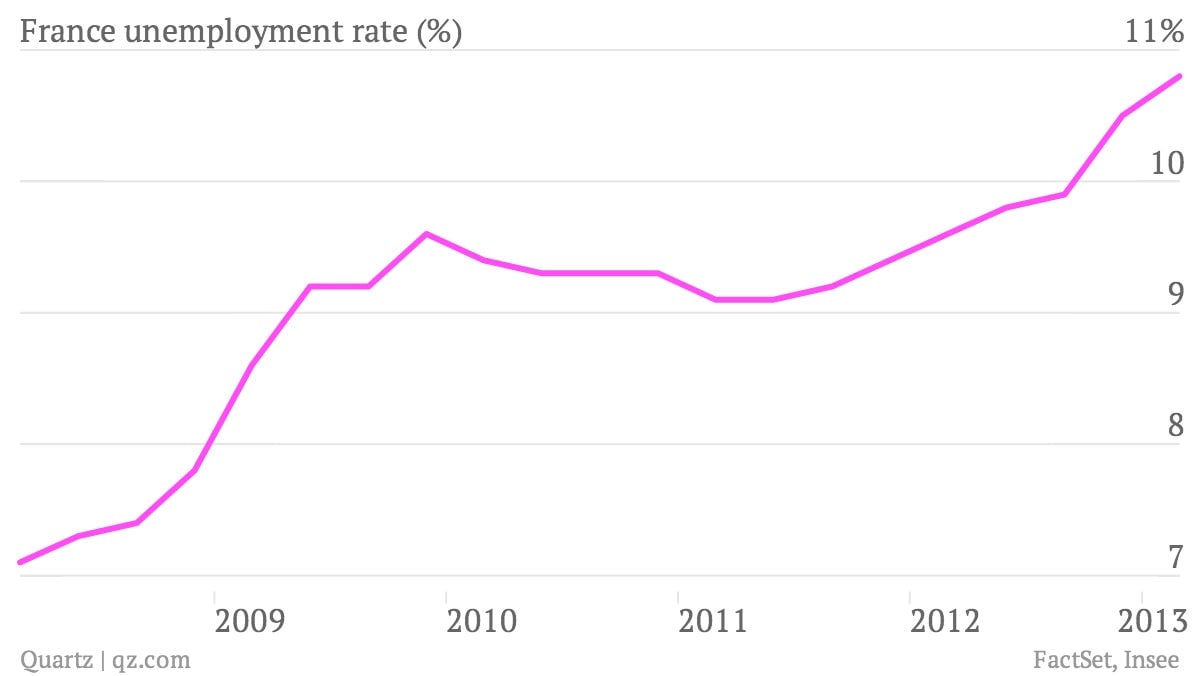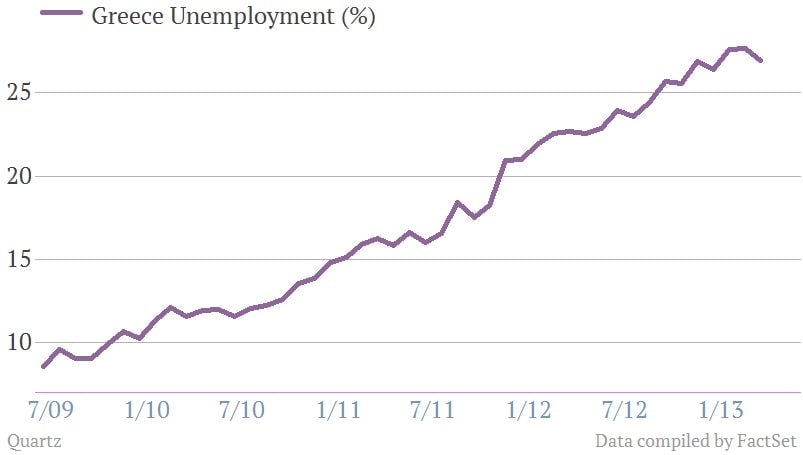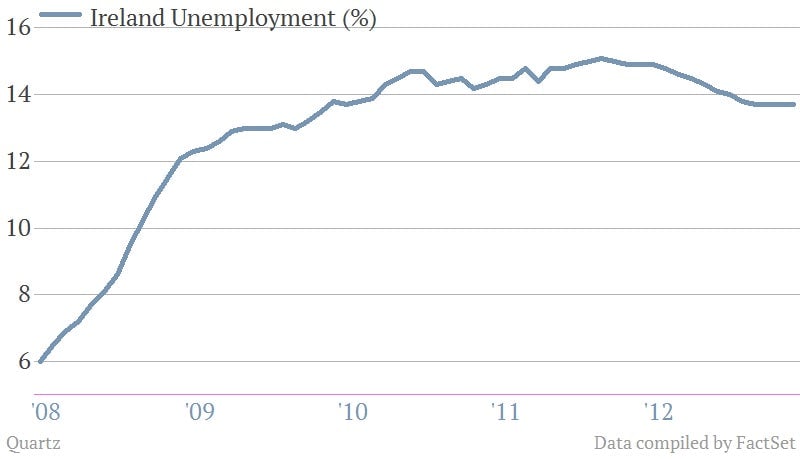Jobless rates climb to some scary new highs in France and Greece
Some euro zone unemployment data is out today, and it’s not pretty. In Q1, France’s jobless rate hit 10.8% (pdf), the highest it’s been since 1998, and significantly higher than the 10.5% in Q4 of 2012. Worse, Eurostat, which calculates things a little differently, estimates that it’s already risen to 11%. The news isn’t that shocking, given that the GDP shrunk 0.2% during that quarter (pdf), but it sure doesn’t take any pressure off president Francois Hollande, who just last week vowed to sharpen his focus on creating jobs, particularly as there are hints that April unemployment was even worse. Here’s a look at the trend in quarterly unemployment:


Some euro zone unemployment data is out today, and it’s not pretty. In Q1, France’s jobless rate hit 10.8% (pdf), the highest it’s been since 1998, and significantly higher than the 10.5% in Q4 of 2012. Worse, Eurostat, which calculates things a little differently, estimates that it’s already risen to 11%. The news isn’t that shocking, given that the GDP shrunk 0.2% during that quarter (pdf), but it sure doesn’t take any pressure off president Francois Hollande, who just last week vowed to sharpen his focus on creating jobs, particularly as there are hints that April unemployment was even worse. Here’s a look at the trend in quarterly unemployment:

In Greece, 1.31 million people were jobless in March. Compare that with 390,000 in March 2008. And that’s despite slightly positive signs elsewhere in the Greek economy. 245,949 people lost their jobs (pdf) in March, compared with just 6,697 in February. That meant 26.8% of the working population were unemployed in March, up from 26.7% the previous month and 22.2% in March 2012. That’s not even counting whatever share of the 3.4 million inactive people who have simply given up looking for work.

Greek youth are the worst off. In March, 58.3% of them were unemployed, compared with 53.1% in March 2012. While joblessness is rising among women and men at about the same pace, 30.4% of Greek women were unemployed in March, up from 26% in 2012. Meanwhile, 24.1% of men were without jobs, compared with 19.4% the same month last year.
Ireland is the only bright spot: May jobless claims sunk to the same level that they were in August 2009. However, it’s hard to tell how much of the drop relates to people dropping out of the labor force, leaving the country or actually finding work. But the May unemployment rate remained unchanged from April, suggesting the former explanation, unfortunately:
